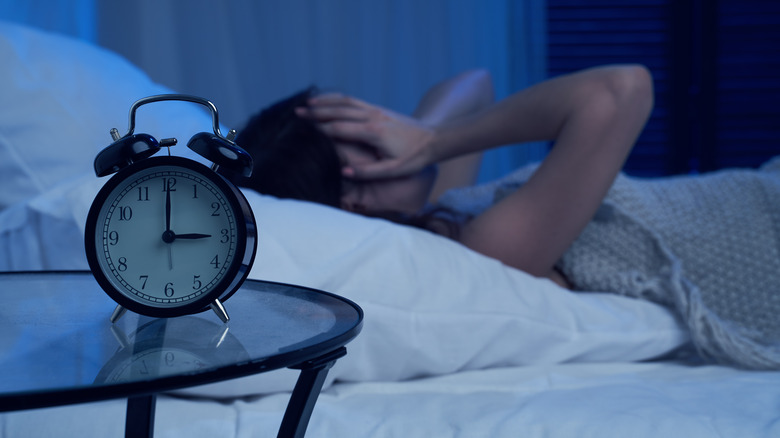Most adults need between seven and nine hours of sleep each night, but plenty of people end up falling short. In fact, a 2024 survey (via Gallup) reported that the typical American gets 6.8 hours of sleep on an average night, with 40 percent of Americans getting fewer than seven hours.
Some people may be surprised that women get slightly more sleep than men on average, with a difference of around 11 minutes each night, according to a 2024 study published in American Sociological Review. Of course, this doesn’t apply to all women, as women are considerably more likely than men to suffer from sleep disorders (per Journal of Women’s Health).
When it comes to those women who do sleep longer than men, it should not be viewed as a sign of luxury or lack of productivity. Some research suggests that women may need more sleep than men to feel fully refreshed.
Women may need more sleep for a number of reasons

Healthline points out that since women are more likely to have sleep disorders, and since many women struggle to fall and stay asleep during their periods, women may need more time in bed to compensate for the time they spend tossing and turning instead of sleeping.
Gender roles can also play a role in women’s greater need for sleep. According to Business Insider, British sleep neuroscientist Jim Horne said that women need an average of twenty minutes more sleep than men, because women are more likely to multitask during the day.
A woman will need more sleep during pregnancy in particular. The American Academy of Family Physicians recommends that people get more sleep during pregnancy, either by napping or tacking on some extra hours during the night. Studies have found that sleep deprivation can predispose a person to pregnancy complications, long labors, and C-sections. That being said, you don’t want to get more sleep than necessary, either. A 2024 study published in Birth found that stillbirth was more common among people who slept for more than nine hours per night late in pregnancy.